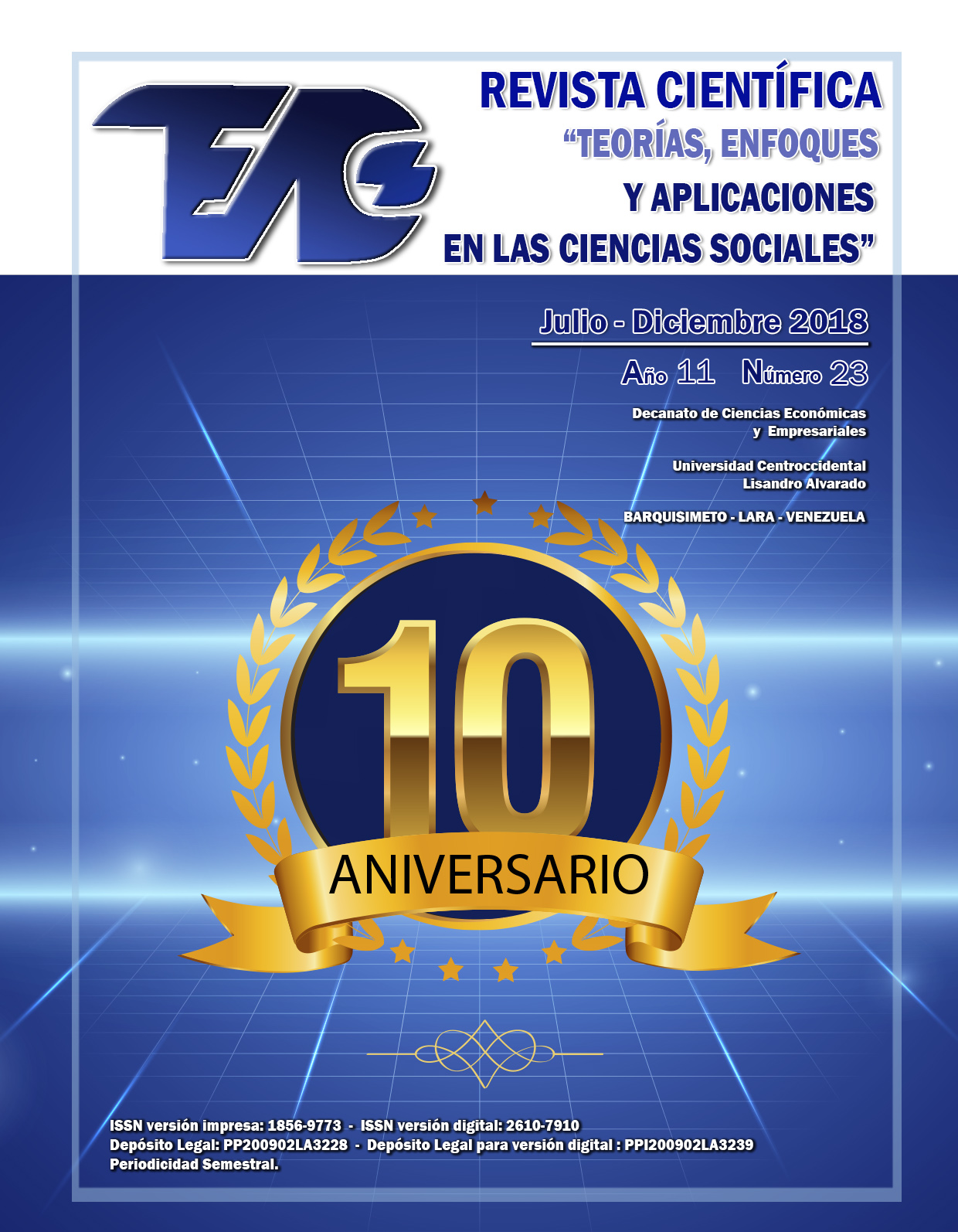Management tools in the management of human university talent
Keywords:
university management, human talent management, psychosocial and organizational, management toolsAbstract
The purpose of this essay is aimed at reflecting on management tools in the management of university human talent. The methodology used responds to a review of the theoretical aspects that explain the implications of the constructs related to an academic vision for training management that consolidates professional competences from a psychological, social and work perspective. The university management is oriented towards search and maintenance of excellence and quality in its different levels and modalities. The purpose is to achieve a quality teaching and learning process in professional training. Currently there are contributions from various disciplines that contribute to organizational management such as NLP, motivation, emotional intelligence and effective communication, among others, contribute to the development of psychosocial and organizational skills. The term management of human talent presents diverse connotations, among them the development of intellectual, emotional and labor competences. It was concluded that the use of management tools in professional training, leads to human, citizen and professional development, in such a way, to converge from a collective consciousness with intellectual potential, knowledge, labor skills to improve their quality of life, trying to give effective and timely responses to the problems that contemporary society faces.
Downloads
References
• Alles, M. (2008).Desarrollo del Talento Humano Basado en Competencias. Argentina: Ediciones Granica. S.A.
• Amat, J. (2000). El Control de Gestión: Una Perspectiva de Dirección. Barcelona: Ed. Ediciones Gestión 2000 S.A.
• Azuaje, E. (2005). Pensamiento Gerencial, su Desarrollo. Caracas: Urania.
• Bandler, R. y Grinder, J. (2000). La Estructura de la Magia. Santiago de Chile: Cuatro Vientos.
• Barroso, M. (2000). Meditaciones Gerenciales. Venezuela: Galoe.
• Benavides C y Quintana C, (2003) Gestión del
• conocimiento y Calidad total, ediciones Díaz de
• santos, Madrid, España
• Benavides, C.y Quintana, C. (2003).Gestión delConocimiento yCalidad Total. Madrid, España: ediciones Díaz de santos.
• Cardona, J. (2010). Hacia un Modelo para la Gestión del Talento Humanoen la Enseñanza Universitaria: Aspectos Básicos. México: Editorial Universidad Veracruzana.
• Ceballos, L. (2016). Constructo Teórico Fenomenológico acerca del Liderazgo Motivacional del Docente Universitario en la Gerencia de Aula en la Escuela de Derecho de la UFT. Tesis Doctoral. Barquisimeto: universidad Yacambú.
• Chiavenato, I. (2011). Administración de Recursos Humanos. El Capital Humano de las Organizaciones. México, D.F.: McGraw-Hill.
• Crespo, R. (2018). Liderazgo en Tiempo de Crisis. Una Configuración Transcompleja. España: Editorial Académica Española.
• De Luna, Á. (2008).Capital Humano. Gestión por Competencias en laAdministración Pública. México: Trillas.
• Drucker, P. (1999). Los Desafíos de la Gerencia del Siglo XXI. Bogotá, Colombia: Norma.
• Gagne, F. (2009). Building Gifts Into Talents: Detailed Overview of the DMGT 2.0. En del MACFARLANE, Bronwyn y STAMBAUGH, Tamra.(coord),Leading change in gifted education: The festschrift of Dr. Joyce VanTassel-Baska.Texas, EstadosUnidosdeAmérica: Prufrock Press
• Goleman D. (2005). Inteligencia Emocional en las Empresas. Barcelona, España: Editorial Kairos.
• Murillo, S. (2004). Relaciones Humanas. México. Editorial Limusa.
• O´Connor, J. y Seymour, J. (2001). PNL y Relaciones Humanas. España: Paidós.
• Senge, P. (2005). La Quinta Disciplina. El arte y la Práctica de la Organización Abierta al Aprendizaje. (2ª ed.). (4ª reimp.). Buenos Aires: Granica.
• Schermerhorn, J. (2002). Administración. México: Limusa.
• Sisk, H. y Sverdlik, M. (1999). Administración y Gerencia de Empresas. USA: SOUTH-WESTEWRN PUBLISHING CO.
• Soto, M. (2008). Acompañamiento pedagógico en Fe y Alegría. Un camino para la formación y transformación. Colección Procesos Educativo. Maracaibo, Editorial Fe y Alegría.
• Tourón, J. (2010).El Desarrollo del Talento y la Promoción de la Excelencia: Exigencias de un Sistema Educativo Mejor.Bordón. Revista de pedagogía. Vol. 62. Nº 3: 133-149. Madrid, España: Editorial Sociedad Española de Pedagogía.
Published
How to Cite
Issue
Section
Derechos del/de autor/es a partir del año de publicación
Esta obra está bajo la licencia:
Creative Commons Reconocimiento-NoComercial-CompartirIgual 4.0 Internacional (CC BY-NC-SA 4.0)
Las opiniones expresadas por los autores no necesariamente reflejan la postura del editor de la publicación ni de la UCLA. Se autoriza la reproducción total o parcial de los textos aquí publicados, siempre y cuando se cite la fuente completa y la dirección electrónica de esta revista. Los autores(as) tienen el derecho de utilizar sus artículos para cualquier propósito siempre y cuando se realice sin fines de lucro. Los autores(as) pueden publicar en internet o cualquier otro medio la versión final aprobada de su trabajo, luego que esta ha sido publicada en esta revista.



